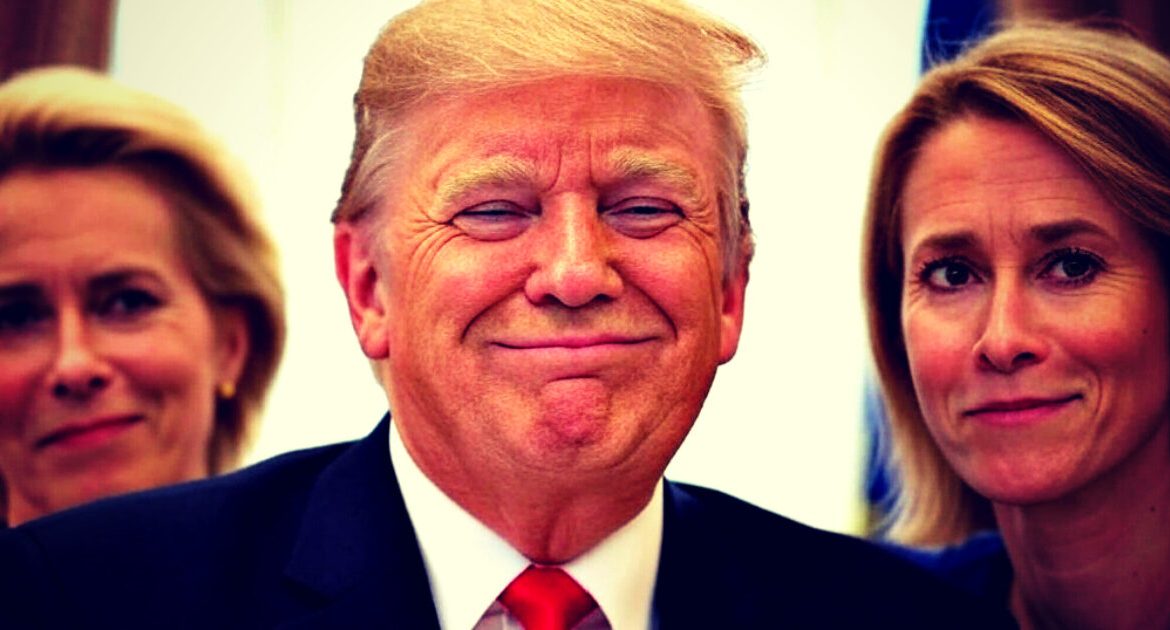
EU Faces Massive Internal Backlash After Leaders Capitulate to Trump’s Tariff Demands


President Donald Trump has clinched a landmark trade agreement with the European Union, imposing a 15% baseline tariff on most EU imports to the United States.
This deal, announced after intense negotiations at his Turnberry resort in Scotland, averts a potential trade war while rebalancing a relationship long skewed against American workers.
Previously, Trump imposed a 10% standard tariff on the bulk of European Union products shipped to the United States, in addition to a 25% duty on vehicles and a 50% levy on steel and aluminum.
Trump warned of raising tariffs to 30% on the entire region if no agreement was secured by August 1, a figure that EU authorities claimed could essentially halt certain trade channels.
The agreement covers key industries, with the 15% tariff applying to automobiles, pharmaceuticals, and semiconductors entering the American market.
EU steel and aluminum face a quota system rather than outright higher levies, providing some relief but maintaining strong protections for domestic producers.
Zero tariffs were mutual on select goods like aircraft, chemicals, and agricultural products, fostering targeted cooperation without surrendering U.S. leverage.
Ursula von der Leyen said negotiations are still ongoing regarding tariff exemptions for wines and spirits.
In a major win for American energy independence, the EU committed to purchasing $750 billion in U.S. energy over three years, bolstering jobs in oil, gas, and related fields.
Additional pledges include over $600 billion in European investments into the U.S., spanning pharmaceuticals and autos, which could create thousands of high-paying positions.
This influx supports Trump’s vision of revitalizing American industry through reciprocal deals that prioritize domestic growth.
The American technology sector has strongly urged Trump to influence the European Union to relax regulations governing online speech and data handling. Von der Leyen refused to yield on these matters, and defended the right for country-specific digital taxes.
While the EU avoided Trump’s threatened 30% tariffs, the outcome highlights Brussels’ internal divisions and reluctance to retaliate aggressively.
Member states like Germany pushed for concessions to shield their export-heavy economies, but the bloc ultimately capitulated under pressure.
Critics in Europe decry it as suboptimal, with France’s Prime Minister François Bayrou stating that this deal is a “dark day” for a Europe that has “resolved itself to submission”.
This pact mirrors deals with Japan at 15% and the UK at 10%, establishing a new global standard where America dictates terms.
The deal shields U.S. consumers from immediate price spikes by phasing in changes, though economists note modest impacts on growth.
Overall, Trump’s strategy has stabilized markets, with stocks hitting highs amid reduced uncertainty.
The post EU Faces Massive Internal Backlash After Leaders Capitulate to Trump’s Tariff Demands appeared first on The Gateway Pundit.
